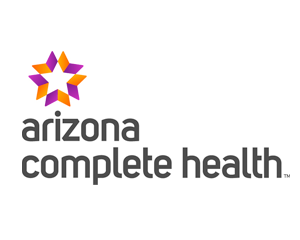A Commitment to Equity, Inclusion and Diversity
20 Years of Advancing Health Equity for Diverse Populations
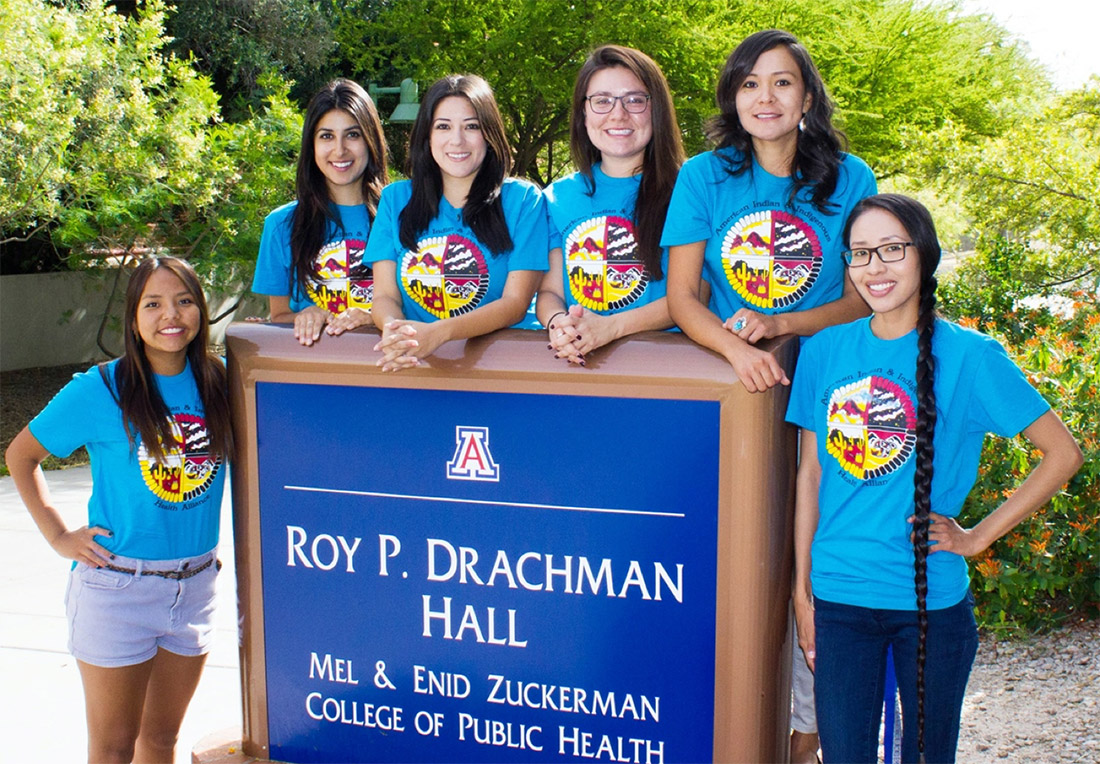
American Indian and Indigenous Health Alliance (AIIHA) student club, Likins Inclusiveness Award Winners, 2015
Our passionate commitment to health equity has guided the Mel and Enid Zuckerman College of Public Health (MEZCOPH) since the beginning. In our education, in our service, in our research and our goals, we strive to build a more inclusive and equitable world, a world that delivers the best quality health care and services to diverse and underserved communities. Collaboratively, we work to educate and support a more diverse public health workforce that will reach all our communities, especially those in Arizona, the American Southwest, and along the US/Mexico border.
The Mel and Enid Zuckerman College of Public Health is dedicated to promoting the health and wellness of individuals and communities in the southwest and globally with an emphasis on achieving health equity through excellence in education, research & service.
That commitment is in our mission statement, and stems from our values: Fairness, Equity, Social Justice, Diversity, and Participation. These principles steer our work, and we are proud of what we have accomplished. Yet we also know that the fight for health equity is never done, so we continue to dedicate our knowledge and expertise to build a more just and inclusive world.
This summer, in response to the tragic death of George Floyd while in police custody in Minneapolis, MN, and the nationwide protests that followed, Dean Iman Hakim sent out a statement in response, and re-commited the College to the fight against systemic racism and injustice.
- We commit to actions that diversify our faculty and student body to ensure that all perspectives are represented.
- We commit to support our diverse students and faculty.
- We commit to ensuring that the curriculum at MEZCOPH addresses diversity and inclusion, culture competency, health equity, social justice and the negative impact of racism on the health of our communities.
- We commit to use our position in the community to make sure all voices are heard through our research, student engagement, and community development projects.
- We further commit to ensure that our community stands united in doing everything we can to uphold our values and be representatives of anti-racist social change and advance the well-being of all people.
In addition, the Students of Color Accountability Group (SOCAG), a student organization founded in spring of 2019, prepared a comprehensive report in June 2020, Voices of MEZCOPH Students, detailing equity and diversity issues in the College. SOCAG presented the report to Dean Hakim and College leadership, who were very appreciative of the insights and guidance. The report prompted many further steps to insure a more inclusive environment at the College.
Taking decisive action, the dean announced a new position to guide MEZCOPH’s leadership in the campaign for health and social justice, an assistant/associate dean of Equity, Inclusion, Diversity, and Multicultural Engagement who will lead the new Office of Equity, Inclusion, Diversity, and Multicultural Engagement for the College. The hiring process for this new position is underway.
In the ongoing effort to assess and support a safe, inclusive, equitable environment for all of our students, faculty, and staff, on November 9, 2020, the College will launch the MEZCOPH Campus Climate Survey, a secure, anonymous, confidential survey with strict research controls, implemented by Dr. Kadian McIntosh, a researcher from the College of Education who brings extensive experience in diversity and inclusion studies. The Campus Climate Survey will guide short term and long term action to grow a more inclusive culture at the College.
Further, the College will launch a new seminar series for faculty, staff and students focused on racial injustice and inequality. This series aims to inspire everyone to make positive change and become more inclusive leaders, professors and public health professionals in diverse university environments. Dean Hakim has asked the MEZCOPH Committee on Inclusion and Equity to lead this effort.
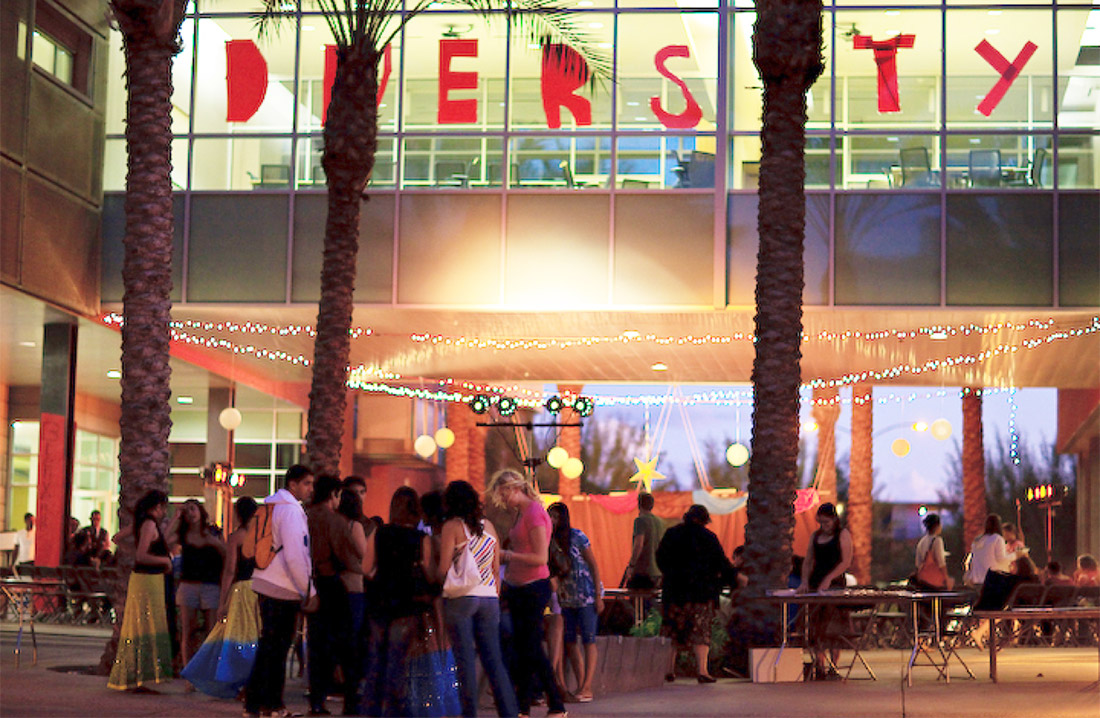
Diversity Day celebration, 2008
An Equity Leader, Locally and Nationally
MEZCOPH is a leader of Inclusive Excellence at The University of Arizona and among colleges of public health nationally. Across the span of the past twenty years, we have earned a reputation for building strong community partnerships throughout the state with border, tribal and rural communities and for conducting effective community-engaged programs that serve diverse populations.
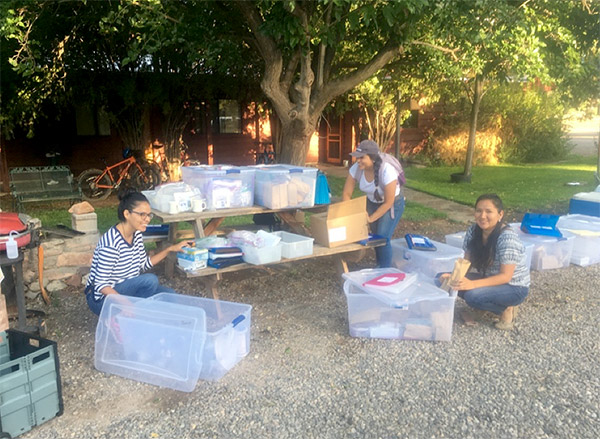
MEZCOPH students prepare to recruit households for a research study to assess
the impacts of the Gold King Mine Spill on the Navajo Nation
Compared to other colleges of public health and colleges within the University of Arizona Health Sciences, MEZCOPH has among the largest proportion of Native American and Latinx students and faculty. Currently 40% of matriculated graduate students are from underrepresented racial and ethnic groups.
The College also consistently supports student-led organizations and events including groups focused on diversity and equity efforts. That support has enabled the creation of the annual Social Justice Symposium, Diversity Day events, and other equity education and engagement events. Several individuals and student groups have received UA Diversity and Inclusion Awards. In addition, the flexibility of our educational programs accommodates diverse students and needs, such as working students and non-traditional students. This flexibility enabled us to adapt quickly when the COVID-19 pandemic hit Arizona, and most of our classes are currently held online.
MEZCOPH contributes to UA’s 100% Student Engagement by having students conduct internships with the diverse communities of Southern Arizona and the World with 97% of internships community based and focusing on community outreach practice and service activities that emphasize eliminating health disparities, building and strengthening diverse collaborations.
MEZCOPH Milestones in Diversity and Inclusion
From the start when the College was established in the year 2000, we have pushed for equity and diversity. That year, MEZCOPH’s Millennium/Diversity Committee was established in response to two University of Arizona reports. The first was a report from the Millennium Oversight Committee that focused on diversity, hospitable climate and equity. The second report was the College of Medicine’s GRACE Project (Generating Respect for All in a Climate of Academic Excellence) which analyzed whether women were treated equitably. In tandem with these reports, Dr. Peter Likins, President of the University of Arizona at the time, urged the College to address diversity when it was created. Our work to build a more diverse and inclusive College and world had begun.
In 2006, MEZCOPH incorporated Service Learning into undergraduate and graduate curricula. Five distinct week-long intensive service-learning courses that focus on binational, urban, rural, and indigenous communities in the southwestern United States are offered to all MPH students. A form of community-centered experiential education, Service Learning locates emerging health professionals in community-generated service projects and provides structured opportunities for reflection on the broader social, economic, and political contexts of health. This Service Learning milestone built health equity into the MEZCOPH curriculum.

Social Justice Symposium, 2008
In 2007, MEZCOPH students initiated the 1st annual Social Justice Symposium to inspire action, foster innovative strategies to promote social equality and improve the public health. The Social Justice Symposium has continued every year since then, and functions as a venue to raise awareness, expand consciousness, clarify assumptions and exchange critical analysis about how social injustice impacts health outcomes. In April 2020, the College hosted the 14th Annual Social Justice Symposium, “Fostering Mental Health Together: Intersectional Approaches for Resilience,” on Zoom due to the pandemic. Hosting over 300 participants, the students held a successful all-day event remotely, the first of its kind!
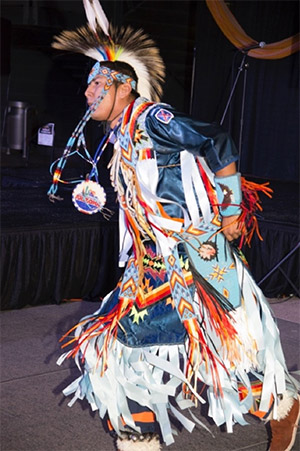
Diversity Day performance, 2014
In 2010 the American Indian and Indigenous Health Alliance (AIIHA) student club was created. An organization that welcomes both undergraduate and graduate students, the AIIHA club seeks to enrich the educational and professional experience of Indigenous students at UArizona by offering diverse avenues of support that are responsive in meeting the needs of Indigenous students. By supporting Native American public health students, the club aims to increase their representation in public health professions. In 2014, a Diversity Day Celebration and Annual Indigenous Day of Health were initiated by the Public Health Student Alliance and AIIHA. In 2015, the AIIHA received the UArizona Peter Likins Inclusiveness Award.
In 2012, the Committee for Inclusion and Equity (CIE) was created. The CIE functions as the advisory body on diversity and equity for the MEZCOPH Executive Council and the Dean. In an ongoing process, the CIE facilitates the integration of inclusion and equity throughout the College’s activities. Both attentive and intentional, the Committee seeks to be a model of equity and inclusion, and to create a scholarly community that understands, values and respects all individuals so that students, faculty and staff can achieve their full potential as public health leaders. The dedication of key staff and faculty members on the CIE merits special recognition, including director of health disparities outreach and prevention education Agnes Attakai, MPA, associate professor Paloma Beamer, PhD, and professor Kacey Ernst, PhD, MPH, whose tireless work with the CIE has made progress possible.
In 2018, MEZCOPH was a finalist for the ASPPH Harrison Spencer Community Service Award, a prestigious accolade that serves to recognize long-standing, major institutional commitment to engage with underserved communities to improve public health. The award is named after the late Dr. Harrison Spencer, ASPPH’s former president and CEO, in recognition of his career of community service and his commitment to social justice.
Our Commitment Continues
In the continuous struggle for health equity, much has been accomplished, and so much more remains to be achieved. We are dedicated to that struggle, and we will not rest. In the year ahead, the new assistant/associate dean of Equity, Inclusion, Diversity, and Multicultural Engagement will be hired and collaboratively lead us on this mission. At the Mel and Enid Zuckerman College of Public Health at the University of Arizona, we are committed to strengthening our culture of inclusion and belonging and to making positive change in the diversity, equity, and inclusion of our MEZCOPH community, teaching, and research, now and into the future.
Learn more about our commitment to Equity, Inclusion and Diversity on our website: https://publichealth.arizona.edu/diversity-and-inclusion


